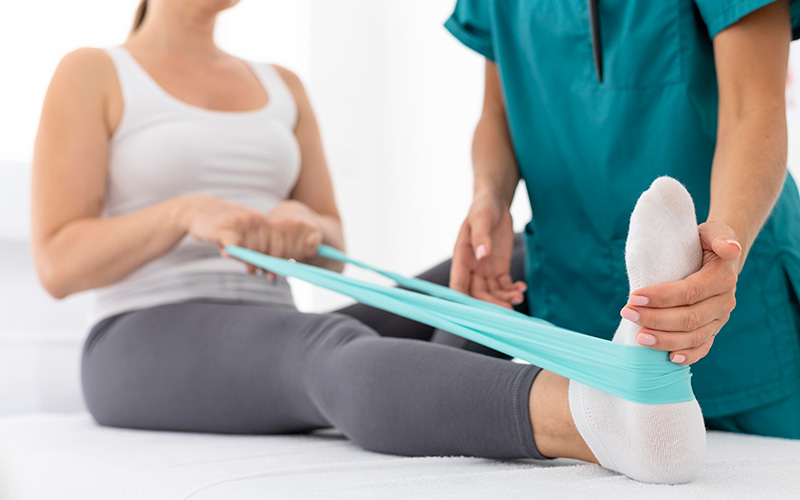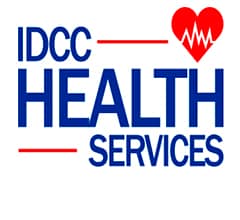Envision a scenario where you’re dealing with the aftermath of an injury, surgery, or illness. The road to recovery may appear intimidating and unknown. Along this journey, you might confront not only physical obstacles but emotional ones as well, leading to moments of uncertainty and doubt. However, amidst these challenges, there exists a beacon of guidance and support – the physical rehabilitation center. This piece aims to shed light on these centers, highlighting their vital role in guiding you back to a state of wellness, mobility, and self-reliance.
Book your session with therapeutic rehab specialists today for personalized care!

The Essence of Physical Rehabilitation Centers: Their Role and Vision
Physical Rehabilitation Centers (PRCs) are specialized establishments dedicated to aiding individuals in regaining capabilities that have been compromised due to various health issues. Whether you’re recovering from an accident, combating a sports-related injury, or facing a neurological challenge, PRCs serve as a bridge from the initial acute care setting to a life of autonomy, helping you regain your physical vigor, coordination, and everyday functionality.
Personalized Services
What sets PRCs apart is their commitment to personalized care. They reject a uniform approach, instead offering a spectrum of services designed to cater to the distinct needs of each individual. Central to these services is physical therapy, which focuses on muscle rehabilitation, alleviating discomfort, and reinstating mobility. Occupational therapy is also pivotal, aiding in the re-acquisition of crucial daily skills such as grooming, dressing, and meal preparation. Furthermore, speech therapy is available to address communicative hurdles caused by the primary health issue. For specific conditions like spinal cord injuries or neurological complications, specialized programs are offered.
Collaborative Care
A defining feature of PRCs is their multidisciplinary team structure. This team, comprising physical, occupational, and speech therapists, along with nurses, doctors, and psychologists, collaborates closely to develop a tailored treatment strategy for each patient. The collective expertise of the team ensures a comprehensive treatment plan that not only focuses on physical recovery but also supports emotional and cognitive restoration.
State-of-the-Art Facilities and Equipment
very. Picture spaces illuminated with natural light, housing an array of therapeutic devices like treadmills, balance equipment, and free weights. Depending on individual requirements, advanced technology like ultrasound units and electrotherapy devices may also be utilized. These resources provide a nurturing environment that encourages patients to stretch their boundaries and pursue their recovery goals.
Centered Around the Patient
The core philosophy of PRCs is patient-centric care. Treatment plans are meticulously crafted, taking into account each patient’s specific circumstances, preferences, and aspirations. The ultimate goal is to empower each individual to achieve their personal milestones, whether it’s resuming professional activities, playing with grandchildren, or simply enjoying a self-sufficient life.
Inspirational Recovery Narratives
The impact of PRCs is best illustrated through the stories of those who have benefited from their services. Picture a stroke survivor taking confident steps without assistance, an athlete triumphantly returning to their sport, or a senior citizen rediscovering the joy of cooking for their family. These narratives not only showcase the transformative influence of PRCs but also offer hope and motivation to prospective patients.
Understanding Financial Aspects
While the advantages of PRCs are clear, it’s also crucial to comprehend the financial aspects, including insurance coverage and associated costs. Most centers collaborate with a wide range of insurance carriers, and financial counselors are available to assist patients in navigating the intricacies of insurance policies and billing procedures. It’s worth noting that investing in high-quality rehabilitation can lead to substantial long-term savings by preventing further health complications and enabling a faster return to work or daily routines.
Conclusion
Physical Rehabilitation Centers are more than healthcare institutions; they are sanctuaries of restoration, providing hope, comprehensive care, and unwavering support on your path to recuperation. Whether you’re embarking on this journey yourself or seeking support for a loved one, PRCs are invaluable allies in your quest for renewed strength, autonomy, and a brighter future. Embrace the opportunity to utilize this precious resource and take the initial step towards regaining your health. With the right support and a committed team beside you, every stride forward is a victory, reshaping your narrative of recovery and triumph.
